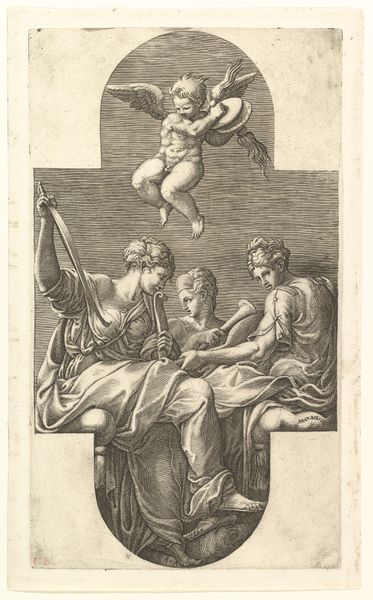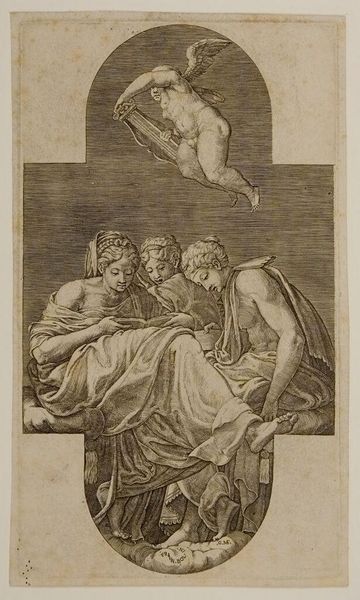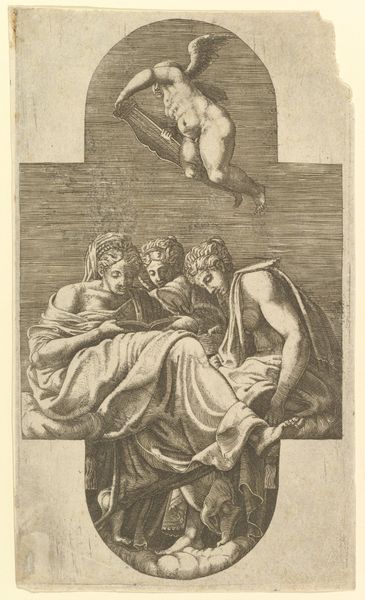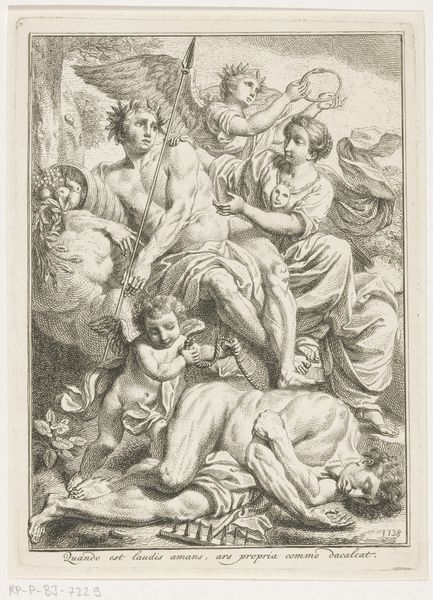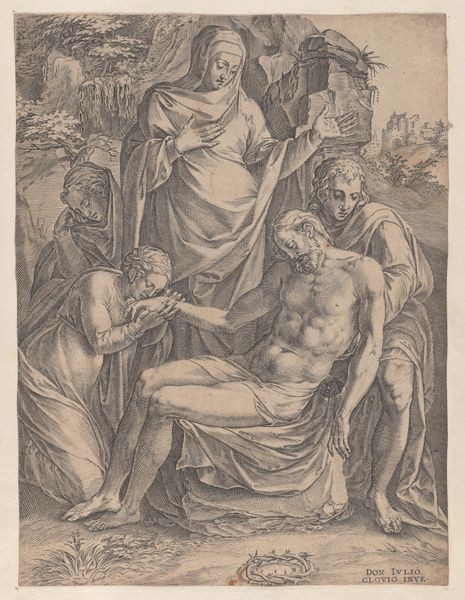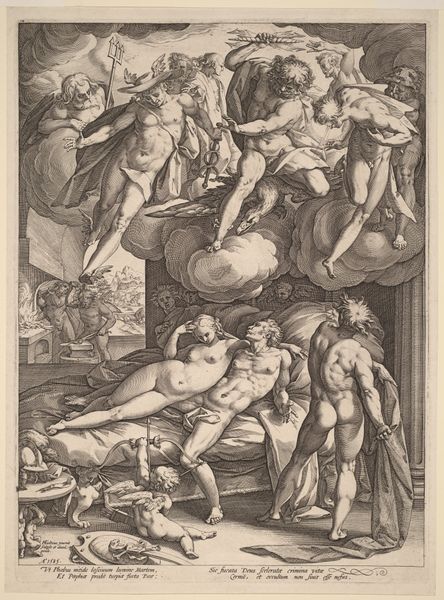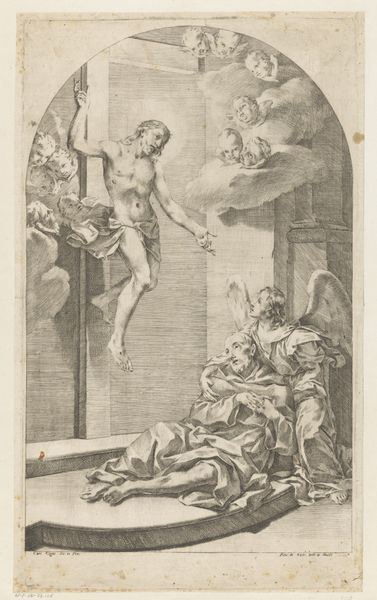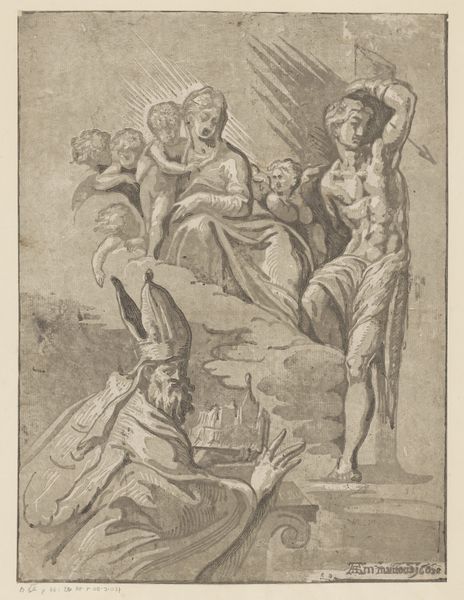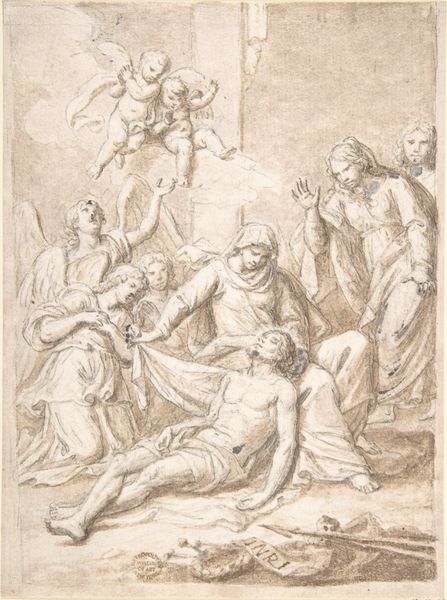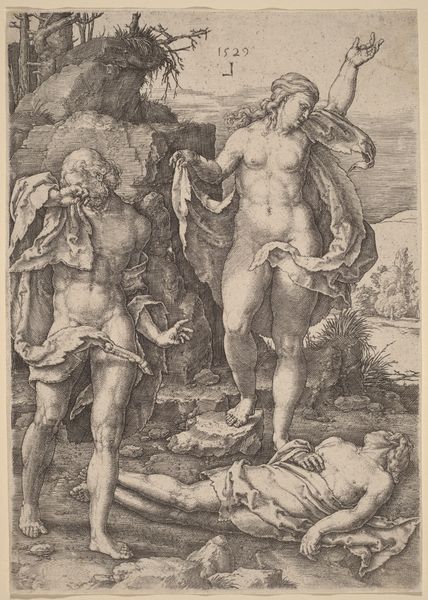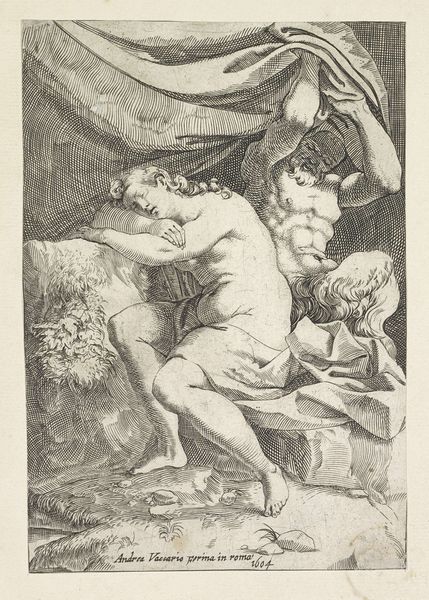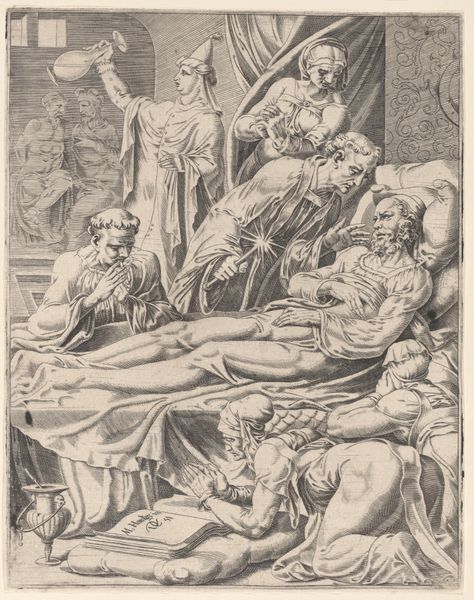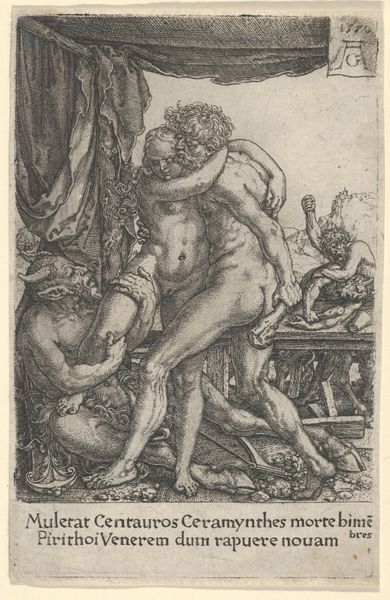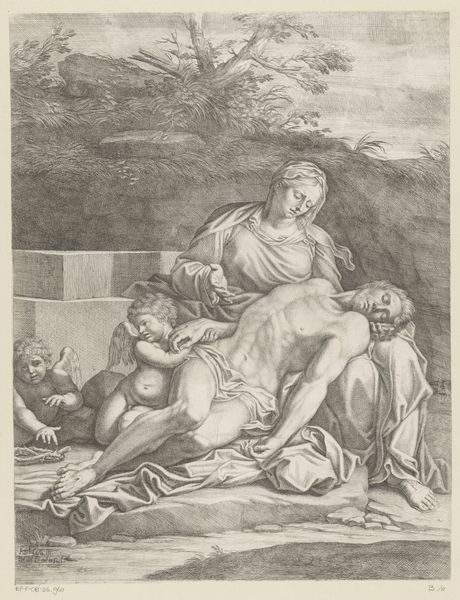
Three Muses and a Putto with a Lyre, a cruciform composition, from a series of eight compositions after Francesco Primaticcio's designs for the ceiling of the Gallery of Ulysses (destroyed 1738–39) at Fontainebleau 1560s
0:00
0:00
drawing, print, engraving
#
drawing
#
allegory
# print
#
figuration
#
11_renaissance
#
line
#
musical-instrument
#
italian-renaissance
#
engraving
Dimensions: plate: 11 5/8 x 6 5/8 in. (29.5 x 16.8 cm) platemark sheet: 12 3/8 x 7 1/2 in. (31.5 x 19 cm)
Copyright: Public Domain
Giorgio Ghisi made this print, "Three Muses and a Putto with a Lyre," in the mid-16th century after designs by Francesco Primaticcio for the Gallery of Ulysses at Fontainebleau. The print gives us a glimpse into the artistic tastes of the French royal court and the broader cultural trends of the Renaissance. The Gallery of Ulysses, for which this design was made, was a grand space intended to display the power and sophistication of the French monarchy. By drawing on classical mythology, with its muses and putti, the decorations would have aligned the French court with the cultural achievements of ancient Greece and Rome. The print, as a reproduction of that design, participates in a wider culture of disseminating artistic ideas, but also served the purposes of courtly display. To understand this artwork better, we can consult archival materials, such as letters and inventories, that shed light on the production and reception of art at Fontainebleau. Through careful historical research, we can uncover the complex social and institutional forces that shaped the creation and meaning of this image.
Comments
No comments
Be the first to comment and join the conversation on the ultimate creative platform.
